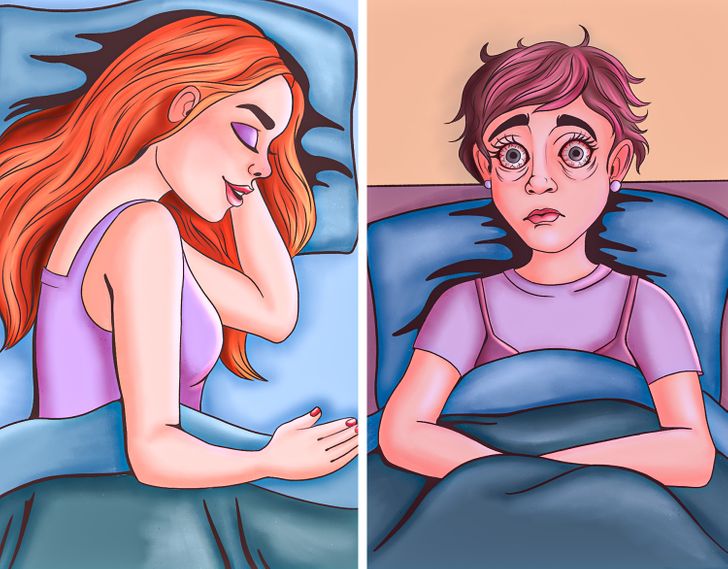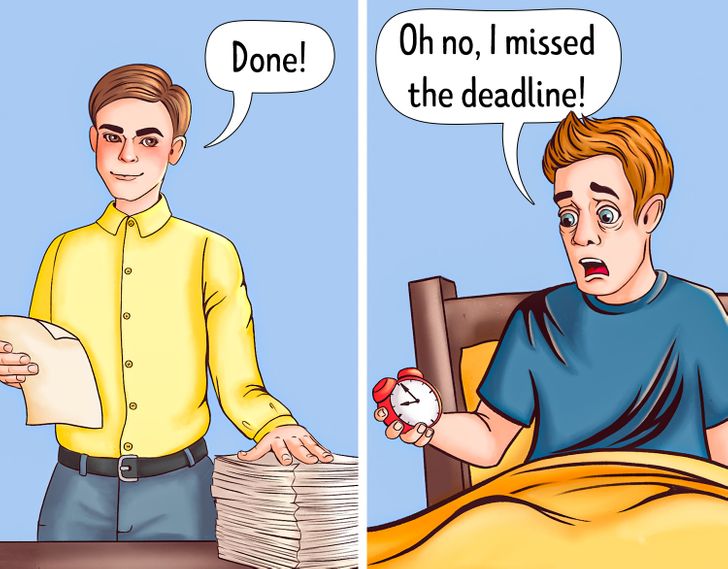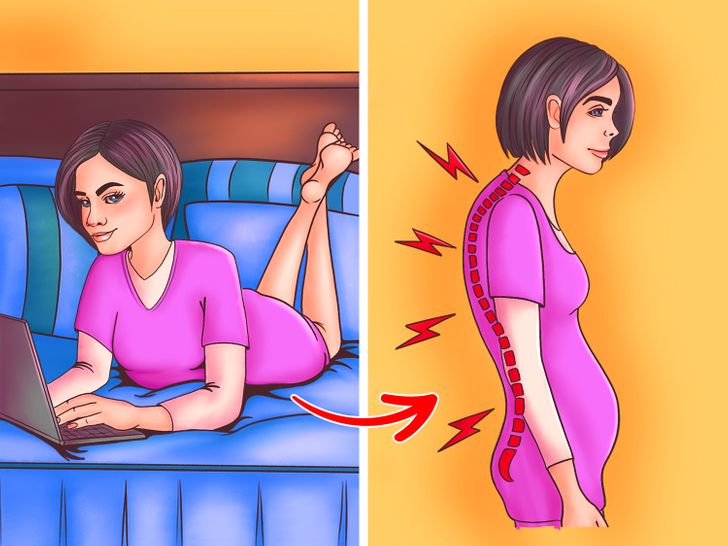It can be difficult to resist the urge to work in a comfortable environment, especially surrounded by fluffy pillows and soft sheets. Some would also say that working in bed helps reduce anxiety and encourages creativity. But setting up a shop where you sleep can harm your physical and psychological health more than anything else.
We want to help you work in a positive environment, so we’ve shared 4 reasons why turning your bed into an office might not be a good idea.
It Messes With Your Brain And Sleeping Patterns

Our brains are wired to connect the beds with the concept of rest and relaxation. Sleep specialist and associate professor of neurology Rachel Salas says that when you work where you sleep, your mind begins to relate that space to activities rather than rest.
Confusion can distract you from your usual sleeping pattern and cause insomnia or circadian rhythm disturbances.
Using electronics from bed can also cause health problems. Being exposed to blue light at night stops the secretion of melatonin, also known as the sleep hormone that influences our natural biological clock.
And lack of sleep can cause a variety of heart diseases and problems.
It Affects Your Productivity

If bringing work home is stressful for you, imagine taking it to your bedroom. A survey found that 72% of American respondents admitted to working in bed, and these people were more likely to have trouble sleeping due to anxiety and stress.
Poor quality of sleep can lead to lower energy levels and decreased work productivity. If your room has a dark atmosphere, you are more likely to feel tired easily.
It Ruins Your Posture

The mattress design and soft surface encourage a sloppy or extended position. Over time, this constant posture will cause pain in the body, specifically in the neck, back, and hips.
Mayo Clinic director of health systems engineering Susan Hallbeck, Ph.D., emphasizes that just because you don’t feel the stress now doesn’t mean the negative effects aren’t happening.
She adds that when the pain increases, it may be too late to fix the problem. Severe cases can include permanent back stiffness and arthritis.
The Bed Is A Haven For Bacteria

When the skin comes into contact with the sheets, friction removes the outer layer of skin cells. According to dermatologist Alok Vij, MD, these skin cells carry oil, sweat, and saliva and serve as an ideal breeding ground for bacteria and mites.
Long-term interaction with these organisms can lead to allergies, asthma attacks, or skin conditions.
A study of bacterial samples from mattresses also found that the bed is dirtier than the bathroom. A one-week pillowcase had 17,000 times more colony-forming units per square inch than a toilet seat.
And a one-week-old sheet had more than 24,000 times more bacteria than the doorknob in the bathroom.
How do you make your work environment comfortable? Have you noticed any work habits that may also be affecting your health and productivity?


